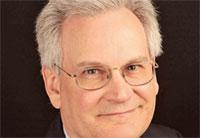TOKYO -- Takahiro Hachigo took over as Honda Motor Co. CEO last June as the company was recovering from several body blows.

Featured Stories
Tariffs already hurting vehicle affordability as more price hikes loom
Despite discounts by automakers such as Ford and Stellantis, the average new-vehicle price rose 2.5 percent in April, and more increases are expected.
Latest News
Staying current is easy with newsletters delivered straight to your inbox.
See More in Newsletters
Staying current is easy with newsletters delivered straight to your inbox.








